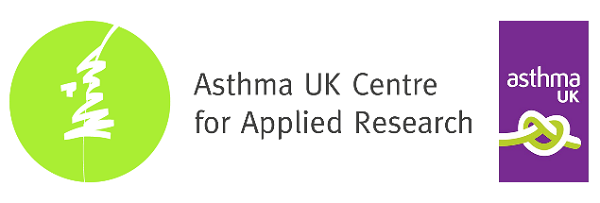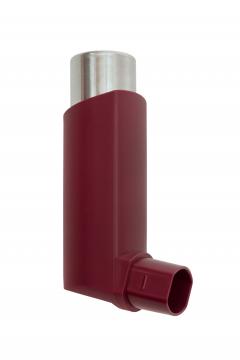IMP2ART study
IMPlementing IMProved Asthma self-management as RouTine.

IMP2ART is an NIHR funded programme of work and a flagship project of the Asthma UK Centre for Applied Research - a network of researchers from universities across the UK, the charity Asthma UK, people affected by asthma, healthcare professionals, NHS partners and other organisations.
Asthma UK Centre for Applied Research website
Background
Supported self-management, which includes providing Personal Asthma Action Plans, helps people with asthma adjust their treatment in response to changes in symptoms. This improves day-to-day asthma control and reduces the risk of asthma attacks and time off work/school.
However, for many reasons, supported self-management can be difficult to implement in routine clinical practice: fewer than a quarter of people replying to an Asthma UK web-survey owned an action plan.

Aim
IMP²ART aims to help general practices embed supported self-management into routine asthma care.
Previous work
We have previously reviewed existing research on self-management of asthma. We determined that there are three key components to successful self-management:
- Patient education
- Professional training
- Organisational support
Each component is rarely effective in isolation. We call this ‘whole systems’ approach, that addresses all three aspects, ‘supported self-management’.
In our preliminary IMP2ART work we explored the best way to ensure the three components of supported self-management are implemented in general practices across the United Kingdom.
Patients told us that they learn over time how to self-manage. Habits form around frequently performed behaviours; experience and self-management advice informs less common tasks. Suggested initiatives included improving access to care from a trusted professional, and using technology.
General practitioners, nurses and staff told us how they organise asthma care in their practices and discussed the best ways of fitting supported self-management into their routines. They told us that nurses provide self-management support within routine reviews, and that lack of time was a problem. They suggested that technological solutions (such as templates, digital action plans) would be useful but needed to integrate with their computer systems.

Current work
In the current IMP2ART work we are going to develop, refine and test an appropriate implementation strategy to help general practices across the UK to embed supported self-management into routine asthma care. This will include:
- Developing effective resources to support patients
- Providing in-house and online training for professionals
- Helping practices to change their organisation to prioritise supported self-management
Following the development of the implementation strategy, we will test the strategy in a UK-wide trial.
Start date: 1st October 2018
| Funder | National Institute for Health Research (NIHR) |
| Principal Investigators | Professor Hilary Pinnock, Professor Steph Taylor |
| Co-applicant | Professor Brian McKinstry |
| Programme Manager | Dr Susan Morrow |

This article presents independent research funded by the National Institute for Health Research (NIHR) under its Programme Grants for Applied Research Programme (Reference Number RP-PG-1016-20008). The views expressed are those of the author(s) and not necessarily those of the NHS, the NIHR or the Department of Health.


